There has been a lot of publicity surrounding the soring, padding and overall abuse involved in the Big Lick Tennessee Walking Horses. And some progress being made towards criminalizing those behaviors.
But I wonder why we aren't looking at the bigger picture – of any “discipline” making use of artificial means to gain an edge. One example I'm going to use right now are Saddlebreds being shown – making use of bungee training devices to gain the high stepping, weighted shoes, chains around the pasterns, gingering and setting the tails. These horses are being permanently altered (tails and hooves) for the sake of a trophy.
How is this different from the outlawed practice of foot-binding to gain a husband?

Compare to these healthy hooves to see what's wrong with this situation.
These are not normal hooves and it is not normal action that is being brought out of these horses. It is as artificial as the TWH big lick gaits with slightly amended methods to achieving it. But the question isn't whether it's as abusive as Big Lick, but whether it's fair to the horse in the human pursuit of a blue ribbon.
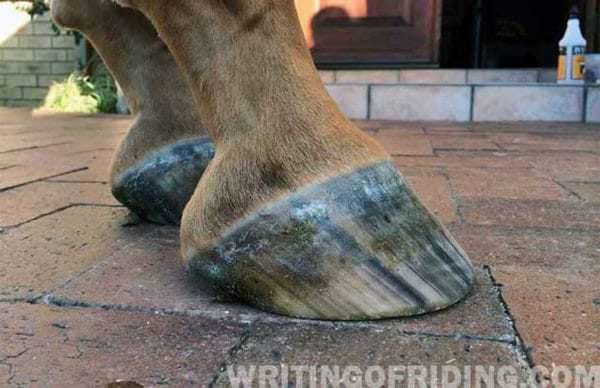
Healthy hooves are not meant to have long, overgrown heels or toes. Keeping the hooves intentionally overgrown causes pain and disease in the feet that can last the horse's lifetime.
Of course all we really need to do is to look as far as the tack stores supplying the training barns to realize how deeply we've failed the horse that this is a common practice. Like Show Horse Tack which is based out of Quincy, Illinois. Just looking through the bit selection is enough to make you throw up. But they also offer ginger salve to “aid in maintaining a proper tail set,” and in case you're a professional they sell it by the case…


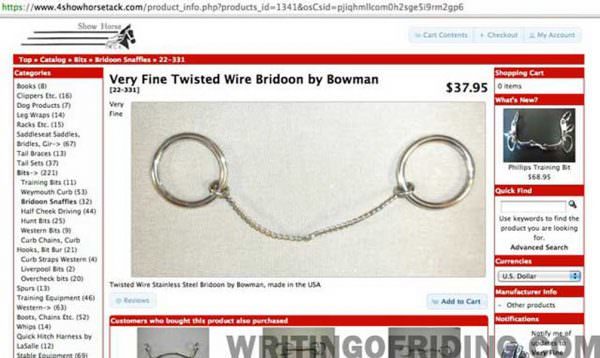


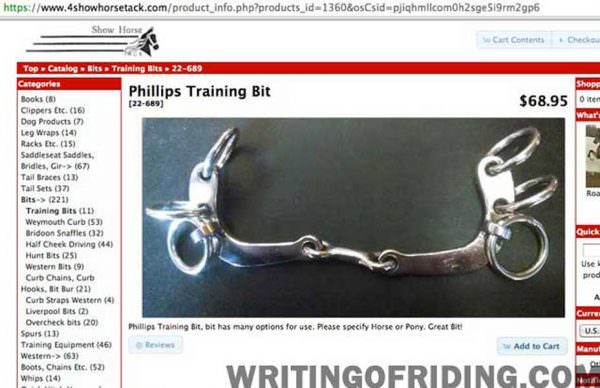


And this post is not about Saddlebreds as a breed. It's about the humans who involve themselves with showing who see a trophy as more valuable than the horse's well-being. These artificial means of training and altering the horse occur in all breeds and disciplines.

Could there be a future in criminalizing these artificial “training” methods, and not just those happening to Big Lick Tennessee Walkers?
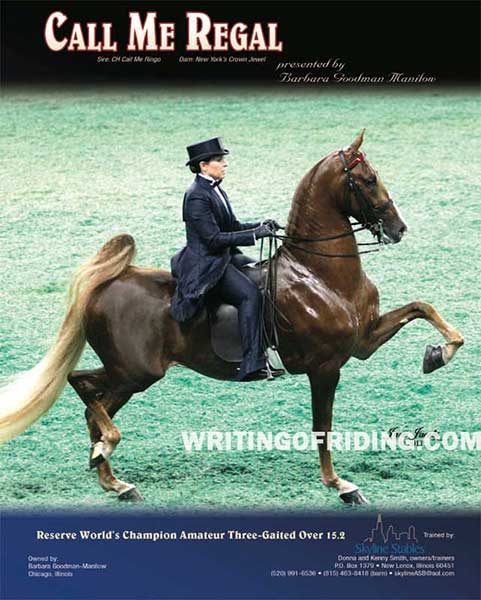

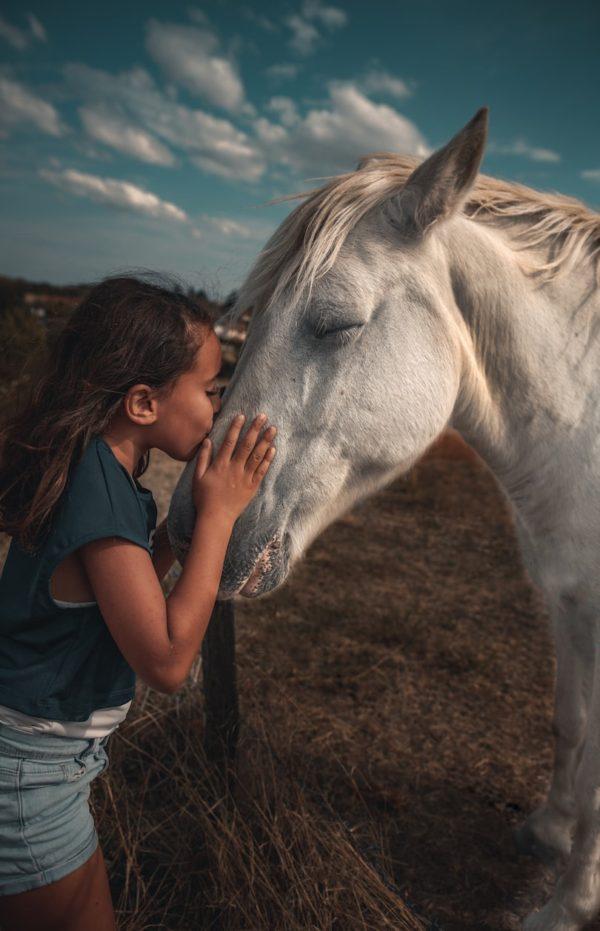
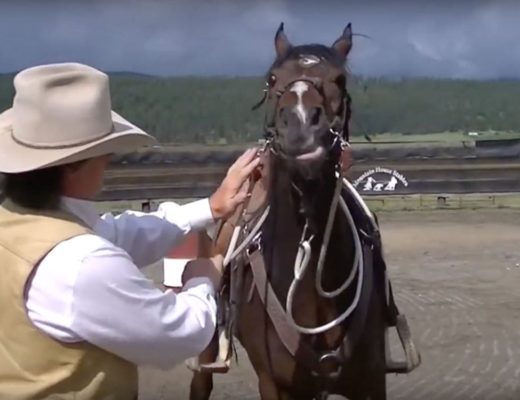
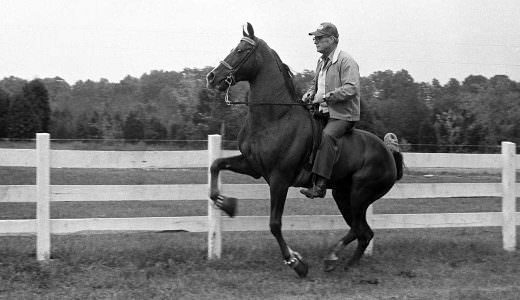

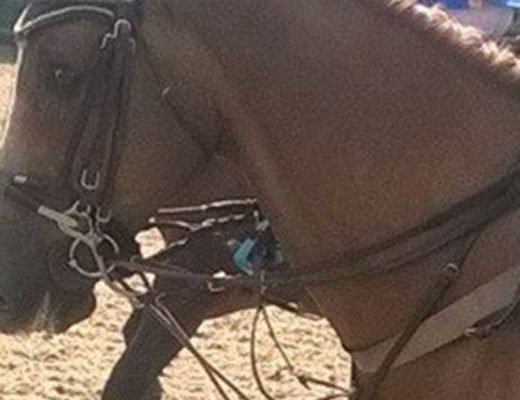
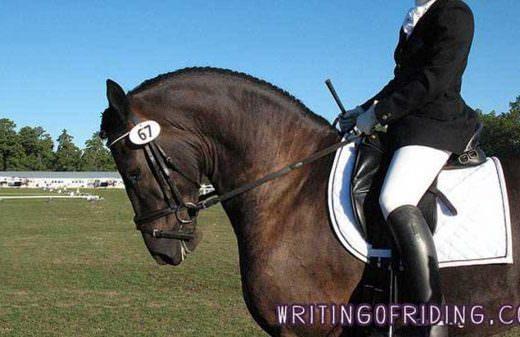
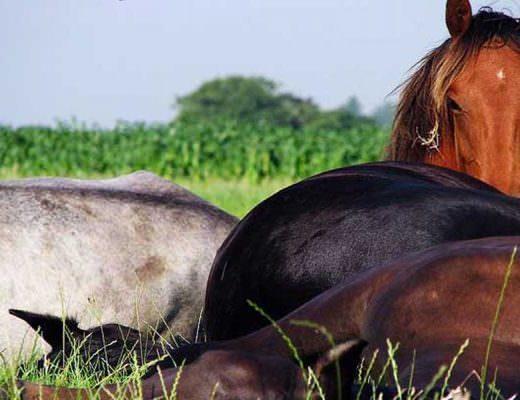
this is a great topic, I see SEVERE abuse here, and its not okay, ive been into hroses as long as I could walk and this never appealed to me as a child I can see why now.. they torture the poor things, shod them so their carreers cant be very long without going lame forever.. my breeder was filed against because someone claimed the foal she sold her was confirmationally flawed as these horses are forced to be,where certainly their bones are going to break through the hoofwall…its just gross..
this is a great topic, I see SEVERE abuse here, and its not okay, ive been into hroses as long as I could walk and this never appealed to me as a child I can see why now.. they torture the poor things, shod them so their carreers cant be very long without going lame forever.. my breeder was filed against because someone claimed the foal she sold her was confirmationally flawed as these horses are forced to be,where certainly their bones are going to break through the hoofwall…its just gross..
Since you chose the saddle seat discipline and the American Saddlebred in particular I thought I should add a few things for your readers to consider.
A little background on me: I have been involved with horses since I was 3 yrs old…it’s now 45 yrs later. I breed them, I’ve trained them, I show them, I’ve rescued them and I’ve taught people how to ride (w/many of my previous students holding title at the local, state & national level as well as several having become professionals themselves). I work for a sports medicine vet (soundness only) and have been attending hoof and leg care clinics for the last 6.
Bits are only as severe as the hands that hold them, the well trained saddle seat rider has little to no actual contact w/the horses mouth except for a some light half halts for head set. Are there people who do things wrong? Absolutely, but it is a reflection of lack of seat, legs or balance which is why you will come across horses that have hard mouths despite only ever having a rubber snaffle in their mouth (not breed or discipline specific).
The shoeing example of the ASB is a reflection of poor farrier work not a discipline or breed specific issue. Contracted heels are probably an easier issue to fix than the lack of sole depth that probably exists in your picture of a “healthy” foot. Short does not equate w/non painful or lacking of issues as I have seen plenty of too short feet w/sheared heels, lack of medial to lateral balance, underrun heels w/long toes, etc, etc. Bad farrier work is bad farrier work. If people would really like to understand farrier work they should look up Stephen O’Grady’s website.
Finally, I’ve attached a link to an American Saddlebred in his “natural state”, he is turned out barefoot behind. He does have a longer foot than your pictured “healthy foot” because I believe very strongly about making sure my horses have sufficient sole depth which for a horse of his size requires him to have a 4 to 41/2″ foot. He also has a regular keg shoe on, the same type you would find on any sport or pleasure riding horse. As you should be able to tell from this video, asking this horse to collect into the saddle seat frame doesn’t take much stretch of the imagination.
https://www.youtube.com/watch?v=3bpLBW69Uwc
Thank you for the educational opinion you provided. I own and show a beautiful ASB gelding who is my absolute world. He has better care and treatment than I would ever give myself. It pains me to see people with little knowledge and education on the disciple or breed sitting behind a keyboard making comments on something they know nothing about. Thank you!
I’m trying to be polite about this, but you don’t know what you’re talking about. I’ve ridden dressage horses and written about them. I have also owned Saddlebreds and have taught them all the basics of dressage. Their necks are nearly vertical at birth and they exhibit high action at birth–it’s what they have been bred to do. I currently own a Morgan mare built pretty much the same way, and she has a natural over-stride that would make her a great dressage prospect–if only she were younger! (She’s 14.) Your post makes it sound as though you found this photo somewhere, and decided to mouth off about a subject you’re unfamiliar with. Please. Next time you have the urge to bash a breed you’re not familiar with, do some basic research.
While I commend your efforts in weeding out people that abuse their horses, it might actually do you some good to know what your taking about instead of snapping scream shots and running your fingers on a keyboard. Rather than speak about something you know nothing about, maybe try to learn something and understand why certain equipment and methods are used. The goal is never to force a horse and be dominat, the goal is a horse with a soft mouth and horse with natural talent and charisma. Please do not bash what you do not understand.
I have an ASB show horse and not only does he light up and show off in the ring, he does it outside when he’s playing and having fun. You have no right to criticize just because it’s something foreign to you. There are things I see in every discipline that I think is “wrong” but I wait until it is explained to me…like an educated person. So before you decide to get behind your keyboard and run your little fingers about something you obviously know nothing about, please take a step back and think about your approach and attitude.
Second Thoughts
I too wish ASB show horses didn’t have their tails set, but on the basis of that and their shoes, for you to say we’re just as bad as people who sore Tennessee Walkers does not reflect well on you. The owners and trainers of all competition horses, including those in dressage, have a few dirty little secrets. Why, to take one example, are dressage competitors all going along tamely with trainers who bend their necks into their chests so far that it raises their stress level? Racing Thoroughbreds endure all kinds of abuses. Jumpers have been trained and sometimes shown with batteries in their girths to give them shocks. Hunters, especially in kid classes, have been so tranquilized one horse died. In unscrupulous hands, Western horses have been bled overnight so they don’t want to do anything that requires energy. And yet you pick out American Saddlebreds. What we’re trying to do here is stop TWH trainers from driving nails directly into the soft tissue of their horse’s feet–I’ve also heard about some who deliberately founder their horses. This is deliberate, systematic torture, and it has to be stopped. For those of us who love horses, that should be our sole (no pun intended) focus now. Please step back and stop muddying the water.
Hey Joan,
If you navigate through any other posts on my blog you’ll see that I point out problems that are happening across many different discplines and breeds. I am by no means ‘picking on’ ASB’s. I’ve written about hyperflexion that is rampant in Dressage (and other disciplines as well, it’s not limited to Dressage), soring in the TWH breed, abuses doled out by specific individuals, problematic training systems and more.
Because every breed and discipline has “dirty little secrets” does not mean we should refuse to talk about and criticize them. I’ve actually written more about that in “Every discipline does it,” is a Pathetic Excuse of Horse Abuse
Cheers,
Erica
This is the most idiotic article I have ever read. Yes there is some abuse but guess what? There is in all displines. Saddleseat is no better or worse than jumping or barrel racing. Why don’t you go to a Saddleseat barn? Actually do some research instead of hiding behind a screen? This stuff never happens.
my Horse has slightly long hooves and I used a twisted snaffle on him. Guess what he is THE HAPPIEST HORSE I have ever met. He is happier than my friends jumping or barrel horses ridden in hackamores. He never shows signs of pain except for occasional stiffness which all horses get. He’s 18 and acts like a 5 year old. Some horses aren’t made for Saddleseat but some are. And you’re going to have to accept that. Yes there needs to be changes. But at the end of the day Saddleseat is still an incredible sport that you just can’t understand;)